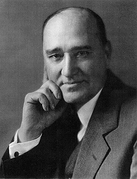| |||||||||||||||||||||||||||||||||||||||||||||||||||||||||||||||||||||||||||||||||||||||||||||||||||
All 435 seats in the United States House of Representatives 218 seats needed for a majority | |||||||||||||||||||||||||||||||||||||||||||||||||||||||||||||||||||||||||||||||||||||||||||||||||||
|---|---|---|---|---|---|---|---|---|---|---|---|---|---|---|---|---|---|---|---|---|---|---|---|---|---|---|---|---|---|---|---|---|---|---|---|---|---|---|---|---|---|---|---|---|---|---|---|---|---|---|---|---|---|---|---|---|---|---|---|---|---|---|---|---|---|---|---|---|---|---|---|---|---|---|---|---|---|---|---|---|---|---|---|---|---|---|---|---|---|---|---|---|---|---|---|---|---|---|---|
| |||||||||||||||||||||||||||||||||||||||||||||||||||||||||||||||||||||||||||||||||||||||||||||||||||
 | |||||||||||||||||||||||||||||||||||||||||||||||||||||||||||||||||||||||||||||||||||||||||||||||||||
| |||||||||||||||||||||||||||||||||||||||||||||||||||||||||||||||||||||||||||||||||||||||||||||||||||
The 1924 United States House of Representatives elections were elections for the United States House of Representatives to elect members to serve in the 69th United States Congress. They were held for the most part on November 4, 1924, while Maine held theirs on September 8. They coincided with the election to a full term of President Calvin Coolidge, who had replaced Warren Harding following his death.
Coolidge's popularity helped his Republican Party to gain a net 22 seats from the opposition Democratic Party, cementing their majority. The burgeoning economy and Republican pro-business policies caused the party to gain popularity. An internal split somewhat reduced House gains, as a progressive faction of the party continued to antagonize party leadership.
In the early stages of the election, there were fears that the Republicans would be swamped at the polls due to several scandals in the administration of President Warren Harding. However, after the chief executive's death, his incidents were painted as personal problems that did not reflect the state of the party. The populist Farmer–Labor Party also gained a seat in Minnesota.
Cite error: There are <ref group=lower-alpha> tags or {{efn}} templates on this page, but the references will not show without a {{reflist|group=lower-alpha}} template or {{notelist}} template (see the help page).

